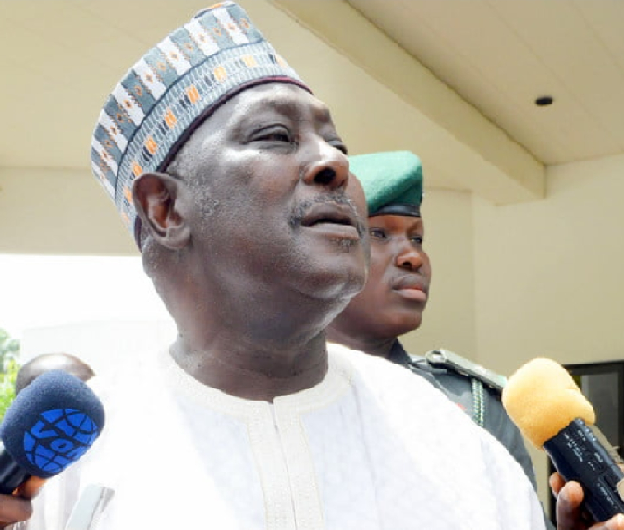Call us @+234 806 558 2598
New States Creation in Nigeria 2025: Unlocking The Unknown.
Nigeria’s State Creation Debate Heats Up

Nigeria is back on the verge of redrawing its political map, and once again, the word “new states creation” is making waves not just in Abuja’s corridors of power, but also across the towns, villages, beer parlors, family WhatsApp groups, and campuses. The Senate recently confirmed it had received numerous proposals to create more states. On paper, the excitement is understandable. In a country as diverse, sprawling, and complex as Nigeria, the promise of closer governance, better development, and ethnic balance sounds like music to the ears.
But behind the drums of celebration lies a crucial question do we genuinely need more states, or are we simply adding more layers of problems to an already overburdened system?
A Brief History on States Creation
To understand why this matter has once again taken center stage, we must revisit Nigeria’s structural history. When Nigeria gained independence in 1960, it was a federation of just three powerful regions: Northern, Western, and Eastern. Over the years, these regions were broken down through military and civilian decrees to produce what we now know as the 36 states and the Federal Capital Territory (FCT). Each phase of state creation was influenced by agitation, a people claiming to be sidelined or oppressed in a larger region, yearning for autonomy, visibility, or just basic development.
Today’s wave is no different. Proponents of new states argue that it will solve three critical issues: political marginalization, development imbalance, and ethnic domination. In places like the South-East, for example, the cry for equal representation has grown louder. The region currently has only five states, the least of any geopolitical zone. Compared to the North-West’s seven states, it’s easy to see why some people feel short-changed. If the number of states is tied to federal allocation, legislative representation, and political power, then more states can logically mean more influence.
Those pushing for new states make very passionate arguments. One of the most common is that state creation brings government closer to the people. Think about it, if someone from a small town in Zuru, Kebbi State, had to travel hours to Birnin Kebbi for government services, wouldn’t life be easier if there was a Zuru State with its own capital and institutions? That’s the emotional and practical appeal. The argument continues that smaller states allow for focused governance, where the government is more in tune with the needs of its people. It’s also believed that new states open up more jobs, more legislative seats, and create a better chance for ethnic minorities to finally “belong” to the system.
But let’s pause here and consider the big picture.
Nigeria, as it stands, is struggling to manage the 36 states it already has. According to financial reports from the Budget Office and National Bureau of Statistics, about 33 states depend heavily on federal allocation to survive. Only Lagos, Rivers, Ogun, and a handful of others can boast of internally generated revenue strong enough to pay salaries and still build roads. Some states have debts that run into hundreds of billions of naira and this is before we start talking about the local governments under them. If this is our reality, what happens when we add, say, 10 more states? Does this improve governance or worsen it?
This brings us to one of the biggest concerns: the management of resources.
At its core, the Nigerian federation is based on revenue sharing, a practice where monthly allocations are distributed from the Federal Government to all states based on a formula. Many experts have criticized this as a lazy and dependent model, encouraging governors to fold their arms and wait for “Abuja money” instead of working to build their state economies. New states created under this model risk becoming allocation states, financially dependent and permanently incapable of standing on their own.
Furthermore, creating new states means building new state bureaucracies from scratch: a government house, ministries, courts, assembly, offices, and countless civil servants. These cost billions. And while the political class might be excited about new offices, titles, and contracts, the average Nigerian citizen may not see any direct benefit. What we risk is creating more administrative burdens, while basic infrastructure like roads, water, and hospitals remain unfunded.
Another dangerous trend that cannot be ignored is the potential for abuse of power in newly created states. In many cases, state creation has become a tool for political control. Powerful individuals or ethnic groups push for new states where they can dominate leadership, install cronies, and consolidate influence. Rather than empower the grassroots, some of these states end up being controlled by a single family, tribe, or godfather. We’ve seen this before, new states becoming mini dictatorships, where elections are manipulated, resources are cornered, and opposition voices are silenced.
This is particularly troubling when you realize that most states in Nigeria already lack strong institutions. The checks and balances that ensure accountability and transparency are weak or non-existent in many places. So when a new state is born, it’s often a clean slate and sadly, a clean slate for corruption to flourish. The promise of development soon fades into power tussles, ethnic rivalries, and looting.
There’s also the risk of violence and tension. One thing history has taught us is that the moment state creation is mentioned, communities begin to argue over boundaries, capitals, traditional titles, and who gets what. There have been bloody clashes in the past over local government headquarters, chieftaincy stools, and resource control. The more we divide, the higher the risk of inter-ethnic and intra-ethnic conflict, especially in politically charged regions.
That said, it would be unfair to completely dismiss the value of new states. In some cases, past state creations have led to real development. Akwa Ibom, once carved out of Cross River State, is now a model of infrastructure growth. Ebonyi, created from the old Abakaliki division, has seen notable improvements in agriculture and education. But the common factor in these success stories is good leadership, not just the creation of the state.
So maybe the question we should be asking is not “should Nigeria create more states?” but rather, “do we have the structure and integrity to make new states work?” Because if the same corrupt, visionless, and self-serving political culture persists, we could divide Nigeria into a hundred states and still not see true development.
There’s also the argument for true federalism, a model where states are granted more autonomy to manage their resources and chart their development path. If Nigeria practiced true federalism, the need for more states would drastically reduce. Ethnic groups would feel less marginalized because their states would be empowered to make real decisions. Right now, everyone is scrambling for states because the center holds too much power.
To move forward intelligently, Nigeria must take a more strategic approach. State creation should not be based on emotions, ethnic identity, or political settlement. It must be based on economic viability, development potential, and institutional readiness. There must be constitutional reforms that guide not just the creation of states, but how they are governed. States must be made to generate revenue, reduce waste, and be held accountable by their people.
More importantly, Nigerians must demand leadership that works, not just more governors with new titles and fancier convoys. The obsession with state creation should not distract from the urgent need to fix the current states, many of which are broken, dysfunctional, and directionless.
In finality, the creation of new states in Nigeria can be a blessing or a curse. It all depends on the motive, the process, and the people in charge. Done right, it can bring hope to marginalized communities, drive grassroots development, and heal old wounds. Done wrong, it can become yet another political gimmick, a costly, chaotic, and corrupt adventure that leaves the people worse off.
So before we celebrate, let’s ask the tough questions. Not just who wants a new state, but why? And more importantly, who really benefits?


